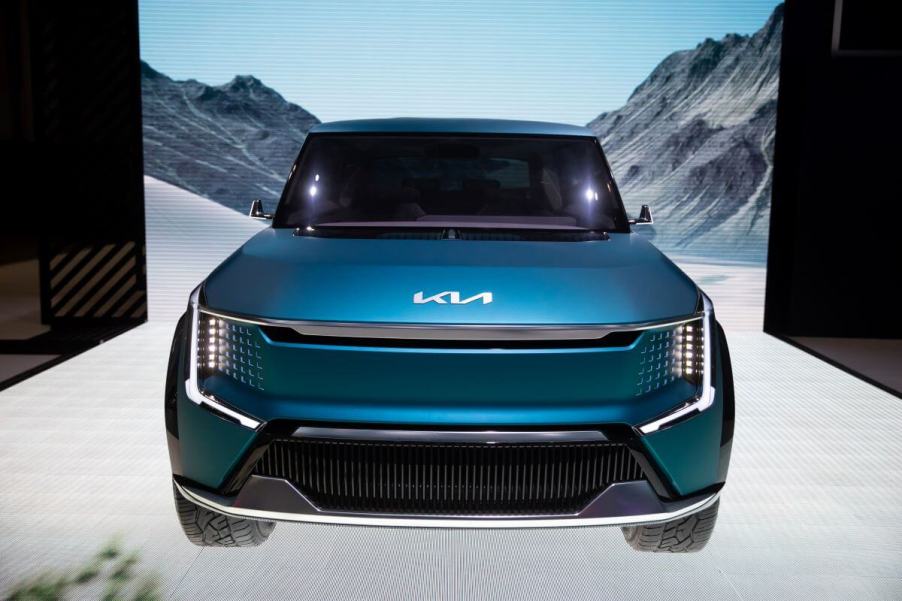
Outdoor Animal Safety Is an Unexpected Benefit of EVs
The automotive landscape is rapidly charging toward full electrification, and the change from internal combustion engines to electric power has pros and cons. EVs carry a higher entry cost, and a lackluster charging network can lead to hassles or inconveniences in re-juicing their battery packs. However, EVs have an obvious advantage in producing zero emissions, and they are more efficient in their energy use and have a lower cost of ownership with fewer mechanical components. Electric vehicles also have an unexpected benefit — they are less dangerous to local wildlife and outdoor pets. Why? They don’t have traditional grilles.
What is the purpose of a grille, and why don’t electric cars need them?
A car, truck, or SUV grille can serve as a styling feature, but more importantly, a grille is required for internal combustion engines (ICEs) to work properly. ICE vehicles create a lot of heat, so they need to be cooled to work efficiently and prevent issues. An easy way to accomplish this is to create a large hole in the bodywork in front of the engine, which provides the necessary airflow to cool the radiator and engine. The grille is a means to attractively cover up this bodywork gap and prevent road debris and the like from damaging internal components.
Electric vehicles don’t rely on internal combustion, so their motor(s) don’t generate nearly as much heat. As such, EVs don’t require the same levels of cooling. So, while they still have some intakes, these are generally far smaller or serve a purpose other than cooling the engine.
However, some EVs, like previous generations of the Chevy Bolt and Kia Niro, still sported grilles. This was likely more of a styling decision than an operational necessity to simulate the look of their ICE counterparts for a sense of familiarity with drivers.
Vehicle grilles can be a danger to wildlife
A potential hazard that grilles impose on wildlife was recently showcased by a raccoon trapped inside a car’s grille and reported in June by the Conservancy of Southwest Florida. According to the article, the raccoon was struck by a vehicle near an intersection and became lodged inside the car’s grille and suffered lacerations and bleeding. Though aid was rendered, the raccoon was humanely euthanized a few days later due to “neurological impairments and deficits” that increased in severity.
Conservancy of Southwest Florida said such incidents are not uncommon. The organization also reported in November 2022 that a Peregrine falcon was struck by a car and became stuck in the grille. About 10 hours later, after the vehicle was taken to a repair shop, it was discovered that the falcon was stuck in the car’s grille and was still alive. The falcon sustained “extensive trauma,” including paralysis due to spinal damage, and was humanely euthanized.
Also in Florida in 2022, news organization Kiro7 reported a coyote was struck by a car and began lodged in its grille. The animal was found alive, still trapped in the grille, the next day.
Drivers piloting EVs would not have prevented these animal strikes. Still, an electric car can prevent animals like birds, wildcats, coyotes, raccoons, and even wandering outdoor pets from becoming stuck inside a car grille following a wildlife-vehicle collision (WVC).
Other EV benefits to wildlife
Aside from their obvious zero-emission operation and elimination of wildlife becoming lodged in a grille during a WVC, electric vehicles have a few other advantages over ICE cars for wildlife.
A particular advantage is wildlife are far less likely to nest or sleep inside EVs. A grille and other openings underneath the car allow stray pets or other animals the opportunity to nest or sleep inside the engine compartment or other areas near a warm engine. With no grilles and often solid underbodies to improve efficiency, this is far less of a concern for electric models.
A car with no grille can also prevent an animal from becoming partially lodged inside a grille and dragged further along the roadway, which could prevent additional injuries outside of being struck.
Lastly, although morbid, drivers can also benefit in the case of a roadkill scenario in that no grille can often make for easier cleanup after the incident.




